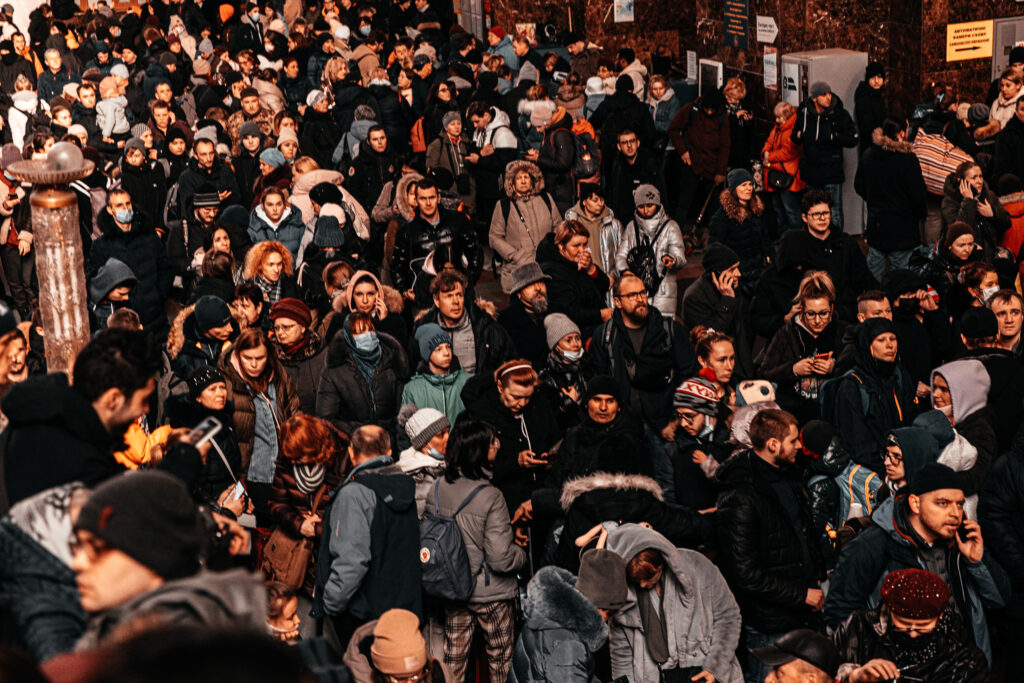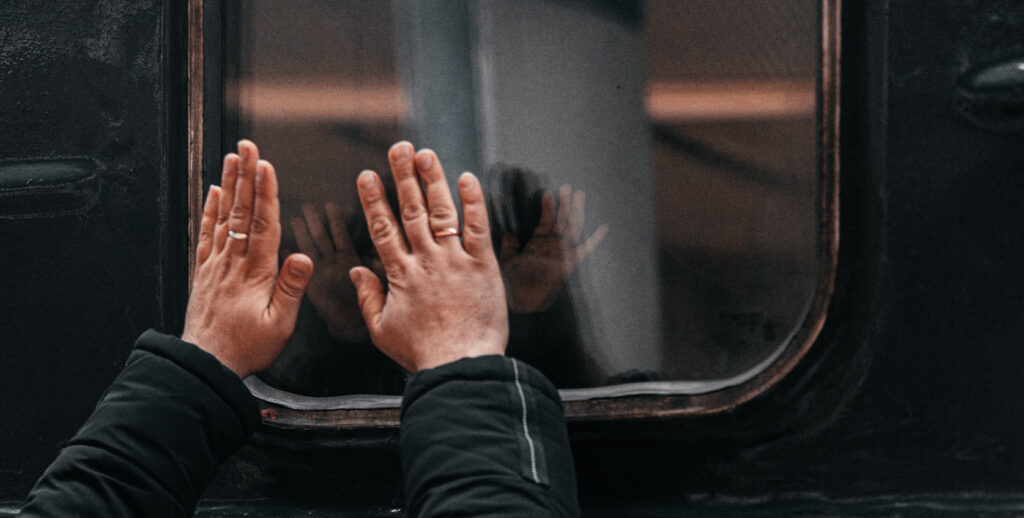
As a society, Ukrainians are now fundamentally different than before russia’s war on Ukraine — Yevhen Holovakha
 Photo: Stanislav Senyk
Photo: Stanislav SenykWe spoke with the director of the Institute of Sociology of the National Academy of Sciences of Ukraine and member-reporter of the National Academy of Sciences of Ukraine, Yevhen Holovakha, about why Ukrainians were wrong in their assessment of their compatriots and turned out to be better and more stable than they thought about themselves.
Tetyana Troshchynska: Has anything happened to Ukrainian society in recent months, starting from February 24th? Has anything surprised you?
Yevhen Holovakha: We are fundamentally different! This is a very interesting situation. You see, Ukrainians were very critical of their country before the Russian invasion. Specifically, about Ukraine’s prospects and, in general, what will happen in regards to getting out of the current reality. It seemed to them that they were in an unacceptable situation.
For example: according to the research conducted by our Institute back in November 2021, only 13% of Ukrainians believed that the situation for Ukraine would improve in the future, and more than 40% believed that it would worsen. The others were either undecided or believed that the situation would remain as it is.

So, we only had a total of 13% of optimists. There were almost no optimists in the East or the South and there were a few in Central and Western Ukraine.
Now the Institute of Sociology is conducting research using the methodology developed by our deputy director Serhii Dembitskyi, and in May [2022 — ed.] the sociological group Rating asked the same question. Currently, 79% of Ukrainians believe that the outlook will definitely improve.
Essentially, Ukrainians have turned from staunch pessimists into overwhelming optimists. The country, caught in a very difficult and tragic situation, became optimistic. These are the overwhelming changes.
Tatiana Troshchynska: However, we often have such a strong consolidation in the face of the enemy and then again, we go through discussions and conflicts. We often punish ourselves as a society for this process. It’s like karma. Although in sociology, it is probably not karma, but other processes and explanations.
Yevhen Holovakha: War, a common problem, unites people. It’s true. Interestingly, we have become optimists because of this situation and most importantly, you know, we believed in the effectiveness of our state.
We believed that the state was not good at solving problems related to development, improving the lives of the population, etc. The overwhelming majority of Ukrainians thought this way. Now, the same overwhelming majority believes that the state is effectively solving the problems that Ukraine has faced.
Not only have we come together because we understood the extent of the threat, but my great conviction is that we realized what we created here, what we built, and what we had in peacetime, to which we were very critical. What we had was much better than what we thought.
In comparison to those who came to us as occupiers, as aggressors, we have built a surprisingly normal and wonderful country.
Well, it is clear that we only realized this in comparison to Russia. It is also clear that this does not save us from the problems that were and will be. However, we just realized that it would be a horror to lose what we had and what we can get.
Tetyana Troshchynska: How stable can our current feelings be? What about the growth of institutional trust, and trust in the Armed Forces, which, probably, can be discussed separately?
Yevhen Holovakha: Yes, the Armed Forces are the most trusted and that’s a fact. There is this category in sociology — resilience. Social resilience, national resilience, and personal resilience. Before this influx happened, NASU chose this very topic for the annual National Report — «National Stability (Resilience) of Ukraine.»
This is not only a sociological topic, but it is the topic of all social scientists. Sociology, specifically, had a significant place and we conducted a large study on this.
And here’s what I will tell you: I personally researched the level of national resilience according to the indicators that were possible to check. It has been empirically proven that the level of national resilience in our country is quite high.
What is this connected with? It relates to the adaptability of the population, with the ability to adapt, and to adapt constructively, to solve the most difficult problems. It is precisely the indicator of this resilience, the ability to withstand problems and troubles, which is quite high.
Also, this was confirmed in studies conducted by the Rating sociological group. They developed a Resilience Index, and it compared studies conducted in April with studies conducted in June.
So, during this time, the Sustainability Index practically did not decrease. Although you know how difficult it was for people in terms of economics, psychology, and health. Also, the fact that many had to lose loved ones, friends, and housing. This is a terrible situation for our entire country.
We will continue to look at this, but in these two difficult months, the vitality did not decrease even though lots of people died, and territory was lost. These factors make it difficult to answer your question optimistically.
I would say this: it will take as much and as many to win.
Tatiana Troshchynska: Mr. Holovakha, what has happened to Russia and Russian society, or has it always been this way?
Yevhen Holovakha: I always warned the Ukrainians about this, but they did not understand it well. My parents came from Moscow, both graduated from Moscow University, and came after the war to revive education and science in Ukraine. They knew very well what Russia is. I myself studied for 5 years at Moscow University and also understood Russia very well. Although I had very serious offers to stay there for graduate school, I understood that I would not live in Russia.
The Russian social space was shaped by the history of Russia’s post-Horde existence. Simply put, Russia simply became the successor of the Horde, specifically when they were the slaves of the Horde. In brief, a very strict system of subordinating people to each other was formed in Russia.
Then under the Soviet government, although it was crueler in Ukraine than in Russia, the Ukrainians knew how to get around it where it was possible. This was thanks to Ukrainians’ psychology, which was formed according to other principles than that of Russians. This psychology stems from a rather long period of life in the Principality of Lithuania, then under the Cossackdom, then under a military democracy, and less than a hundred years of serfdom. On the other hand serfdom existed in Russia for several centuries.
Through this historical process, both Ukrainian and Russian bureaucracies were formed. Unlike Ukraine, Russian neo-imperialism is rooted in systematic violence over the individual. It was then no accident when Soviet curators were always sent to Ukraine and the KGB was very seriously concerned with our problems and the high proportion of dissidents in Ukraine.
It must be admitted that after Soviet rule and then after several years of relative democracy, Russia came under terrible pressure from the successor of the KGB, which was headed by Putin, when the power over the state was also the power over the special services.
These special services have extensive experience in destroying human rights. What have they done over the past 20 years? Using profits from the sale of resources, everything has been thrown into propaganda to simply change people’s minds. This succeeded, given Russia’s history because people have never experienced democracy.
Let’s be honest: it was in Russia that the term «shitocracy» appeared. This is how they reacted to several years of relative democracy. They just hated it and that’s terrible.
On the other hand, for 30 years Ukrainians never had a doubt that democracy was needed. Never. And that’s the difference.
Tatyana Troshchynska: I want to ask you, where is the immoral majority now? I see some of the best people around me.
Yevhen Holovakha: (Laughs) This term did not refer to the fact that the majority of people in Ukraine were immoral. The Ukrainians had an idea about this, but that didn’t mean they were actually immoral. Since they believed that they were building a very bad country, Ukrainians believed that their compatriots were the kind who would take advantage of the moment, grab something, and so on. This is what the majority believed.
And what was I saying? That the majority’s perception of others is far from fair. Ukrainians had misconceptions about their compatriots. This was the «phenomenon of the immoral majority.»
- However, now it turned out that there is no «immoral majority»! On the contrary, now I really hope that Ukrainians will understand that they are surrounded by normal, moral, honest, and very patriotic people in all regions of Ukraine.
This will be the end of the phenomenon of the immoral majority. The phenomenon of imagining one’s state as underdeveloped and not fully developed has ended. Now the state (Ukraine) is considered effective, promising, and one that gives hope to the whole world.



